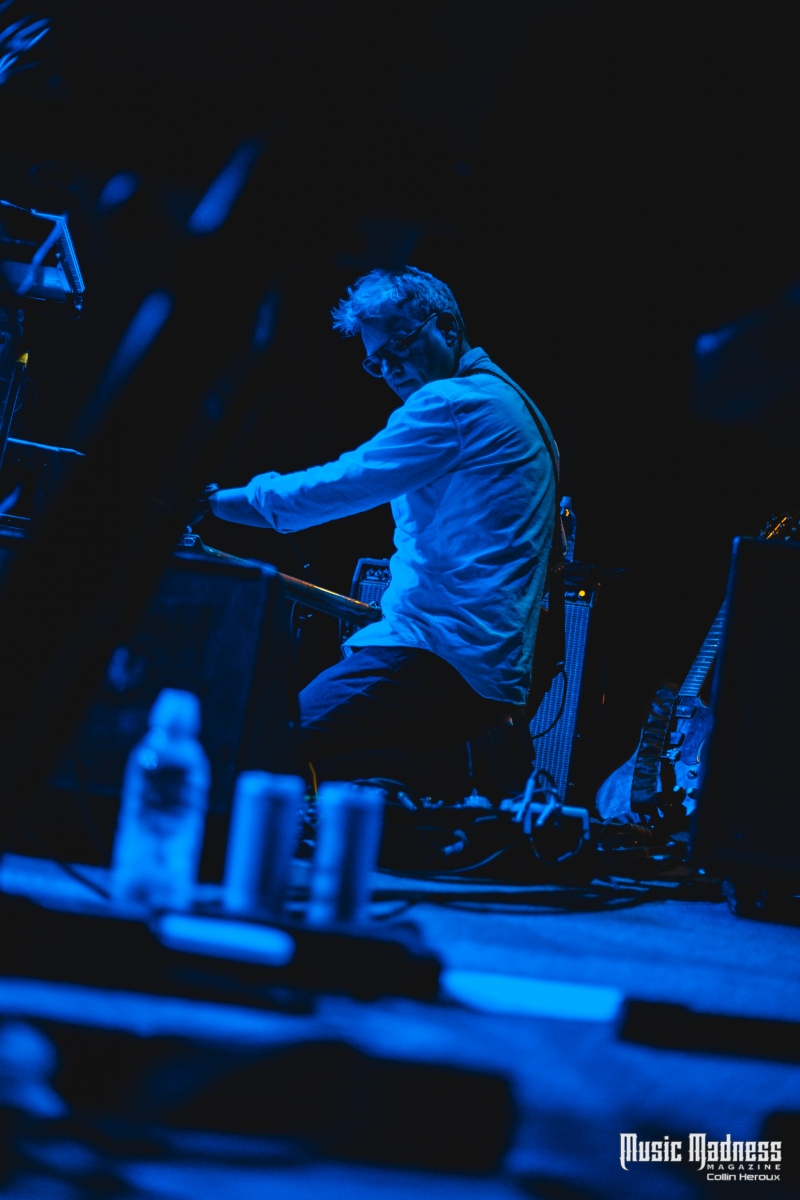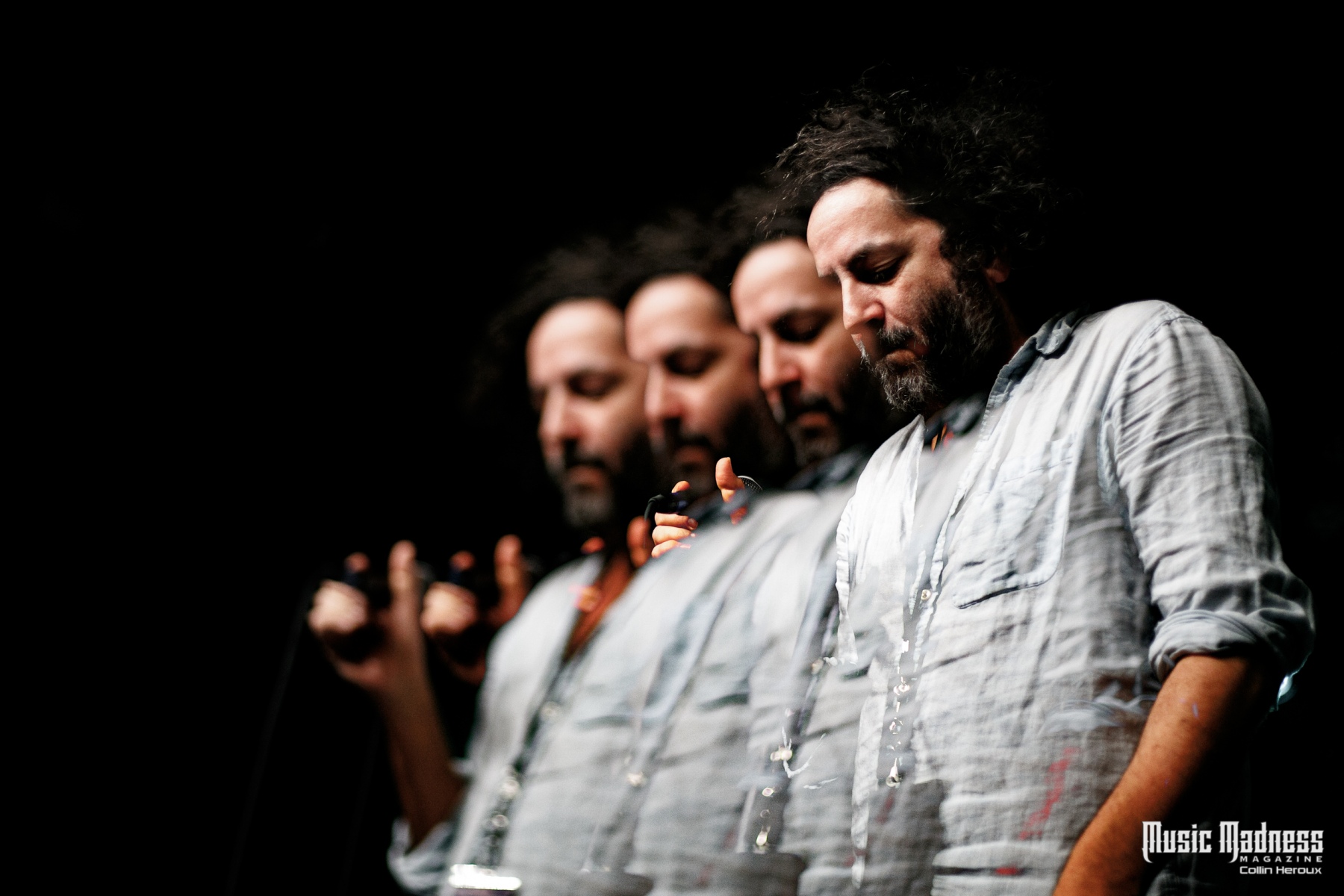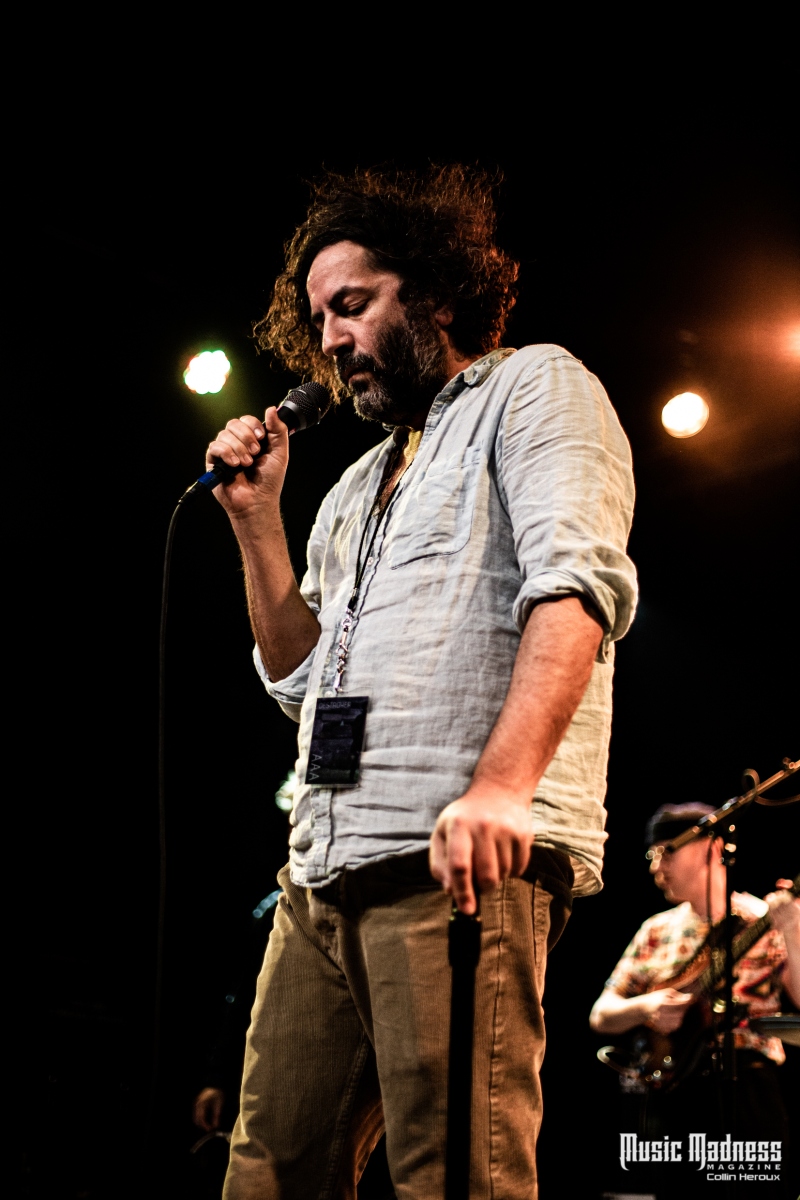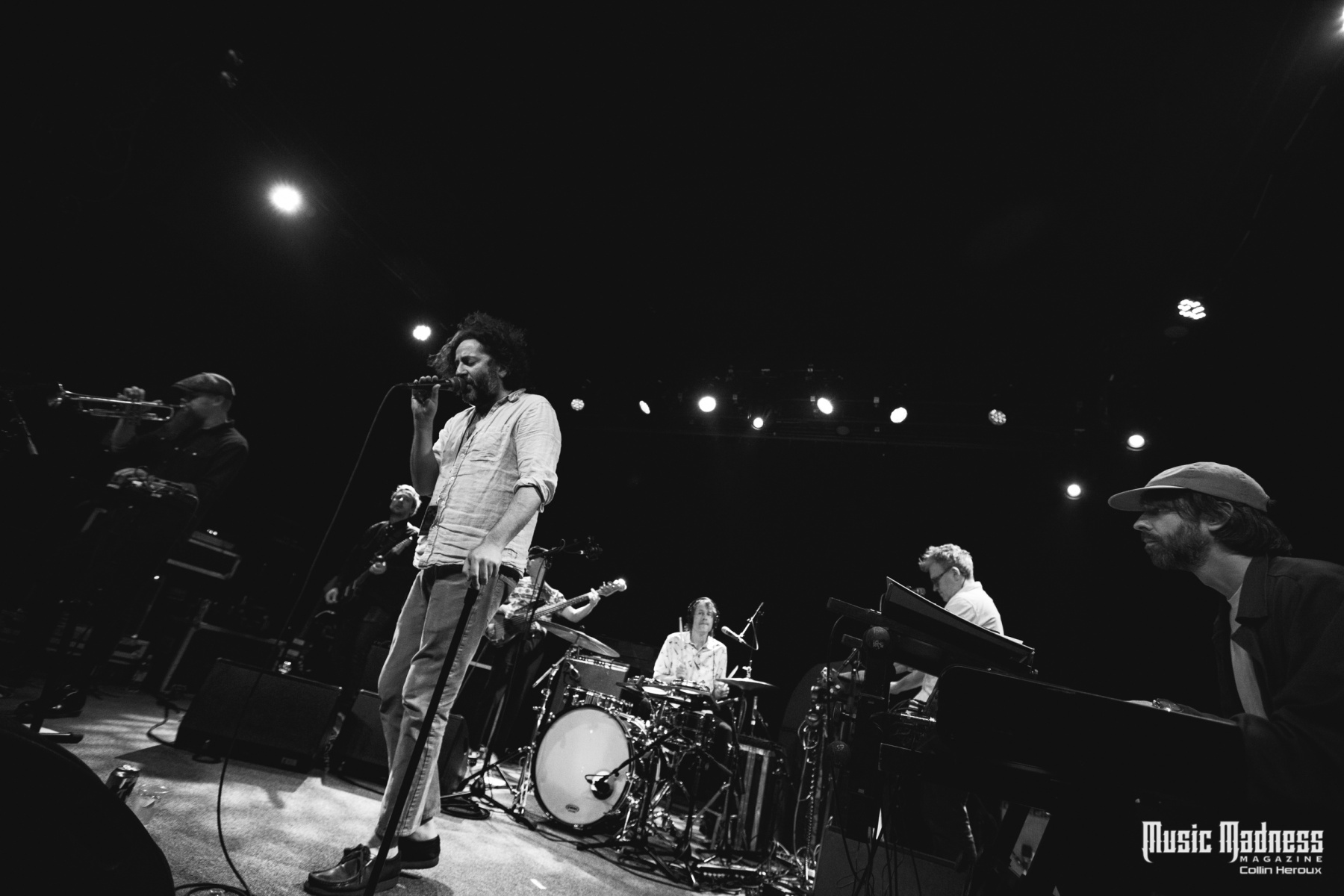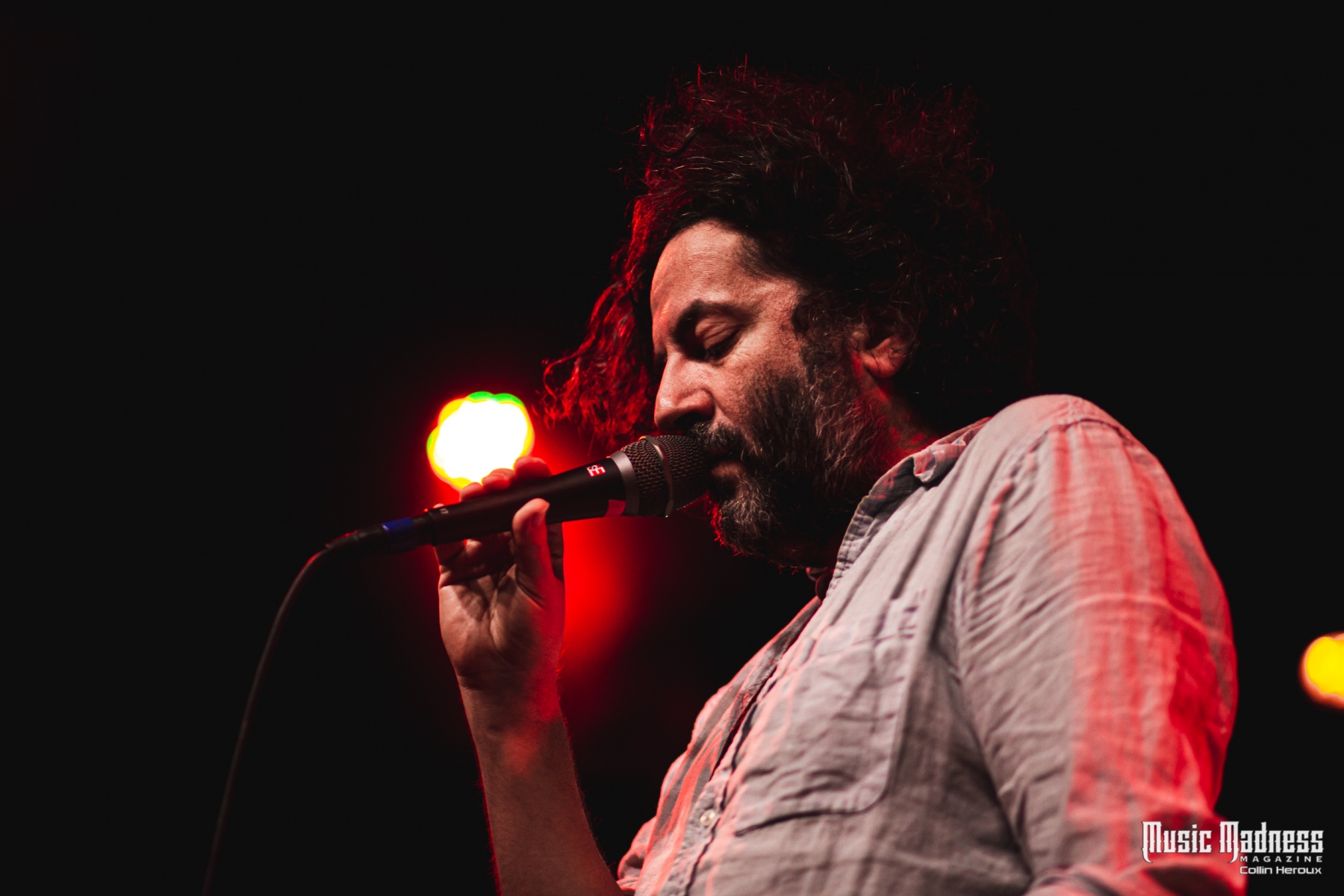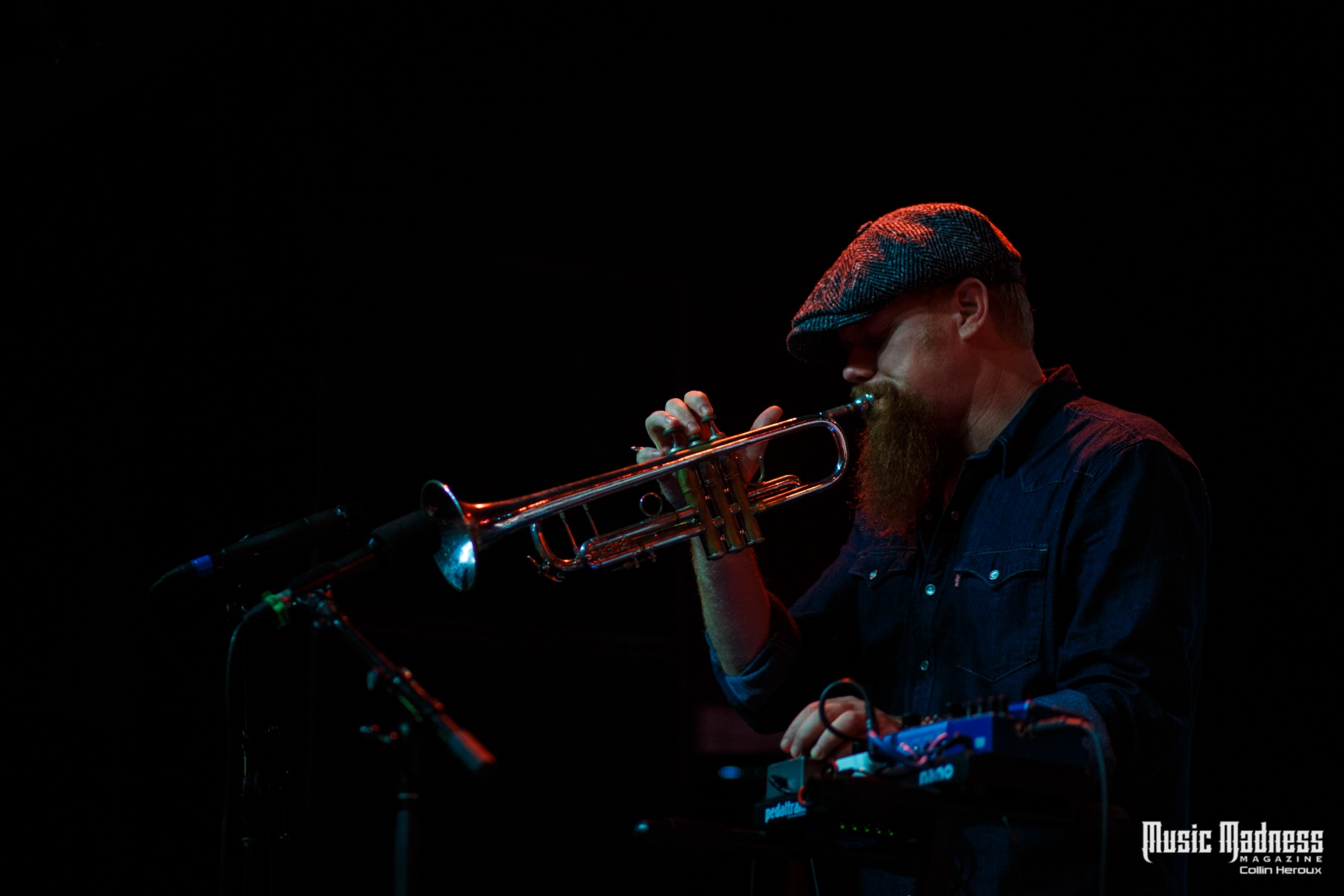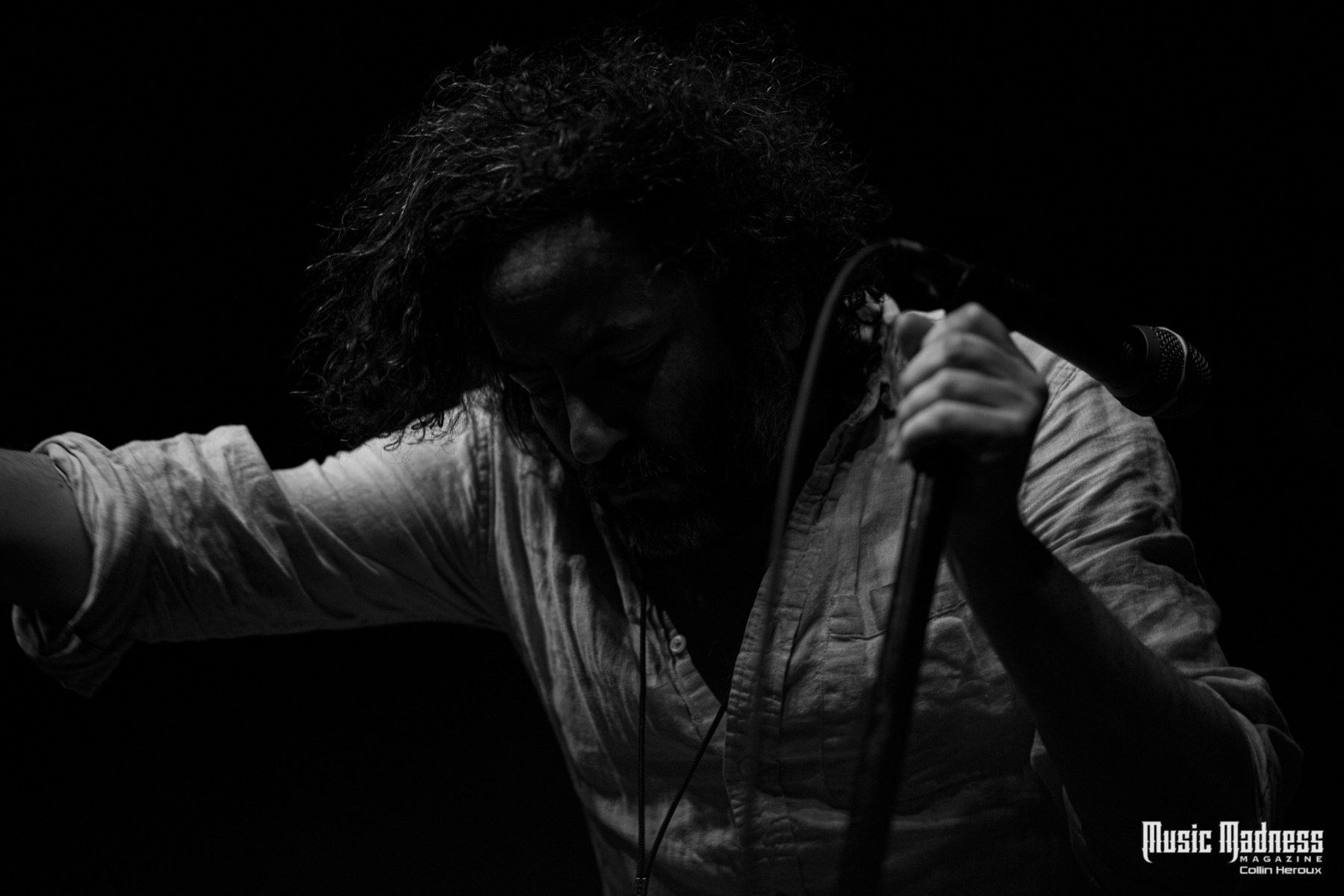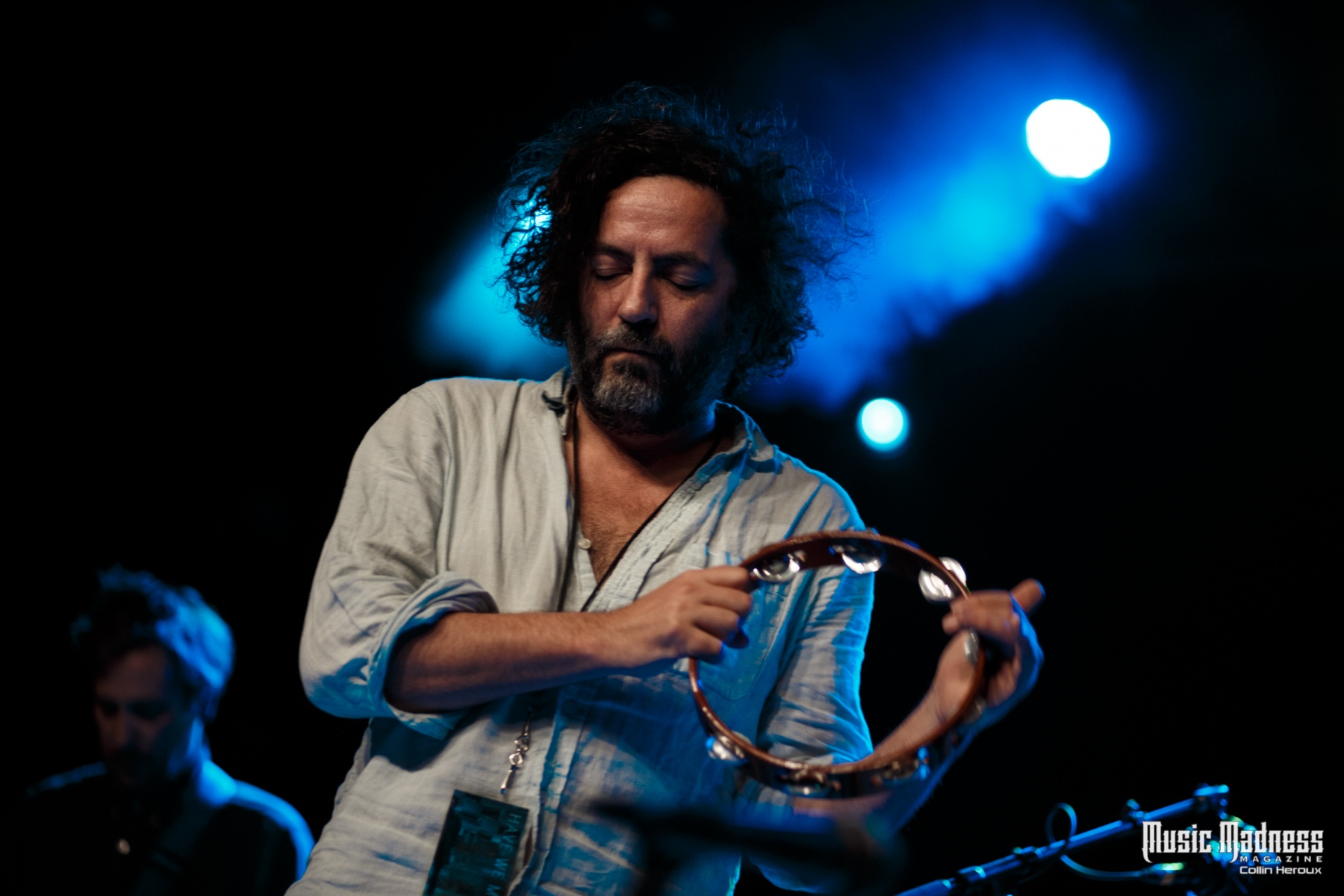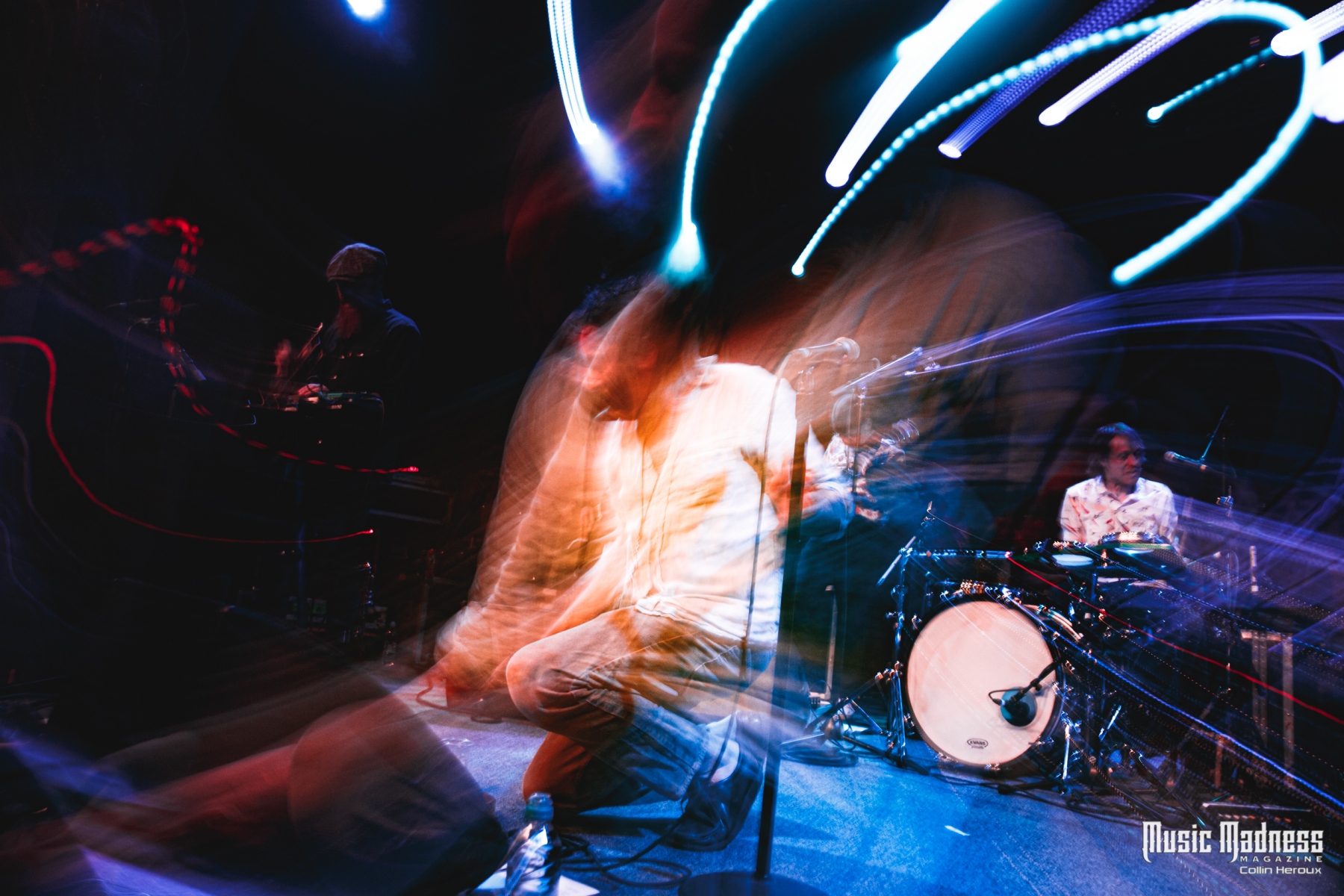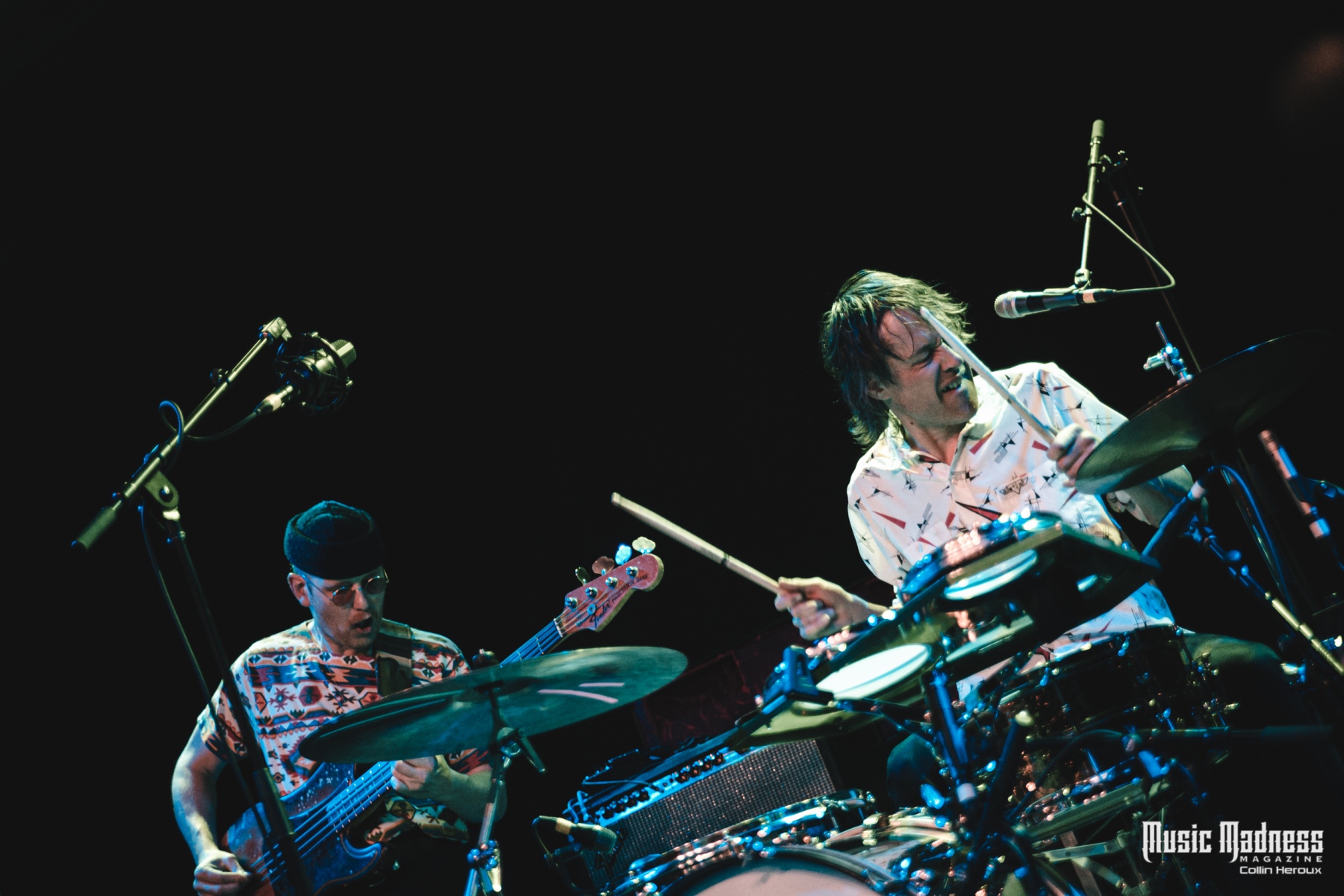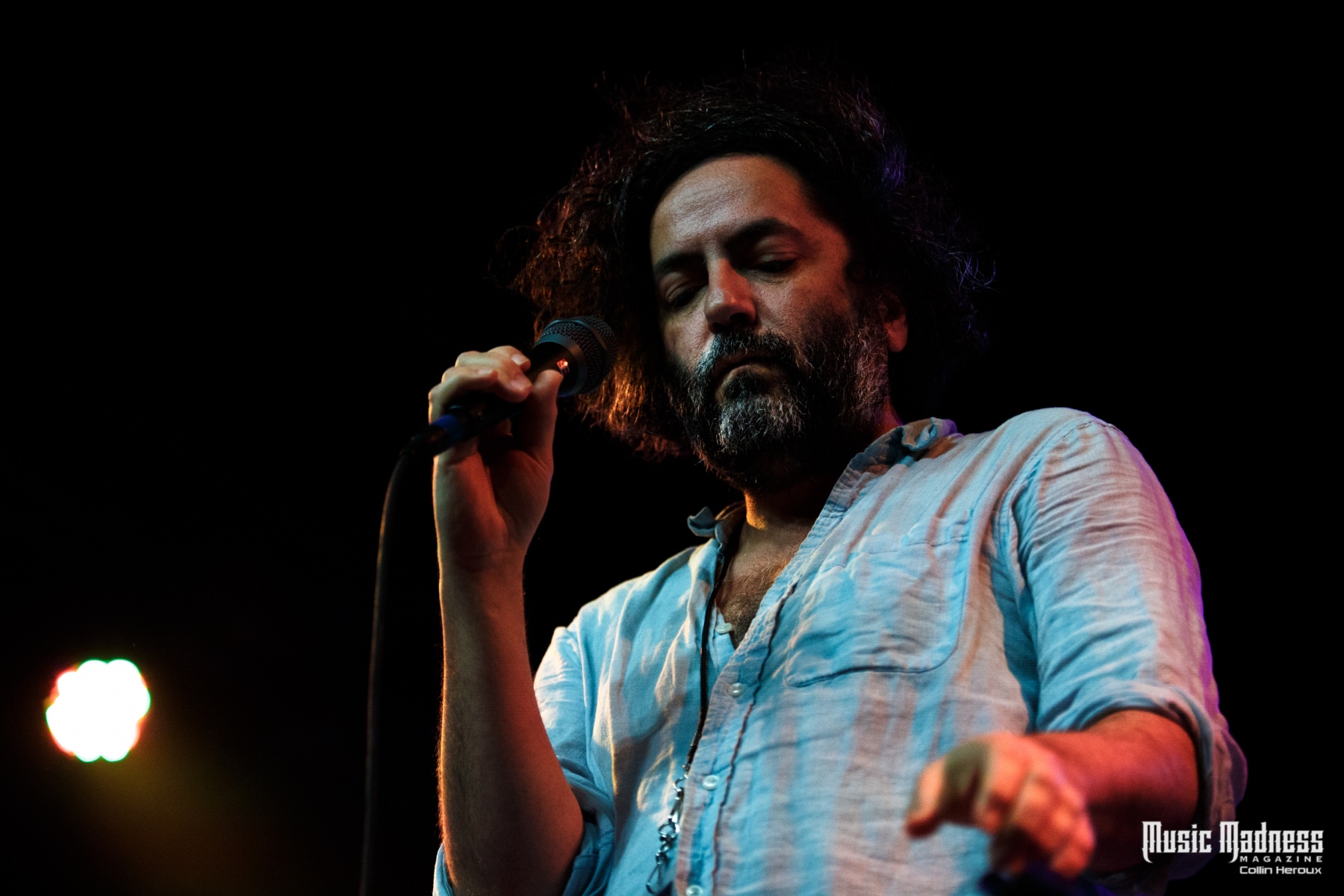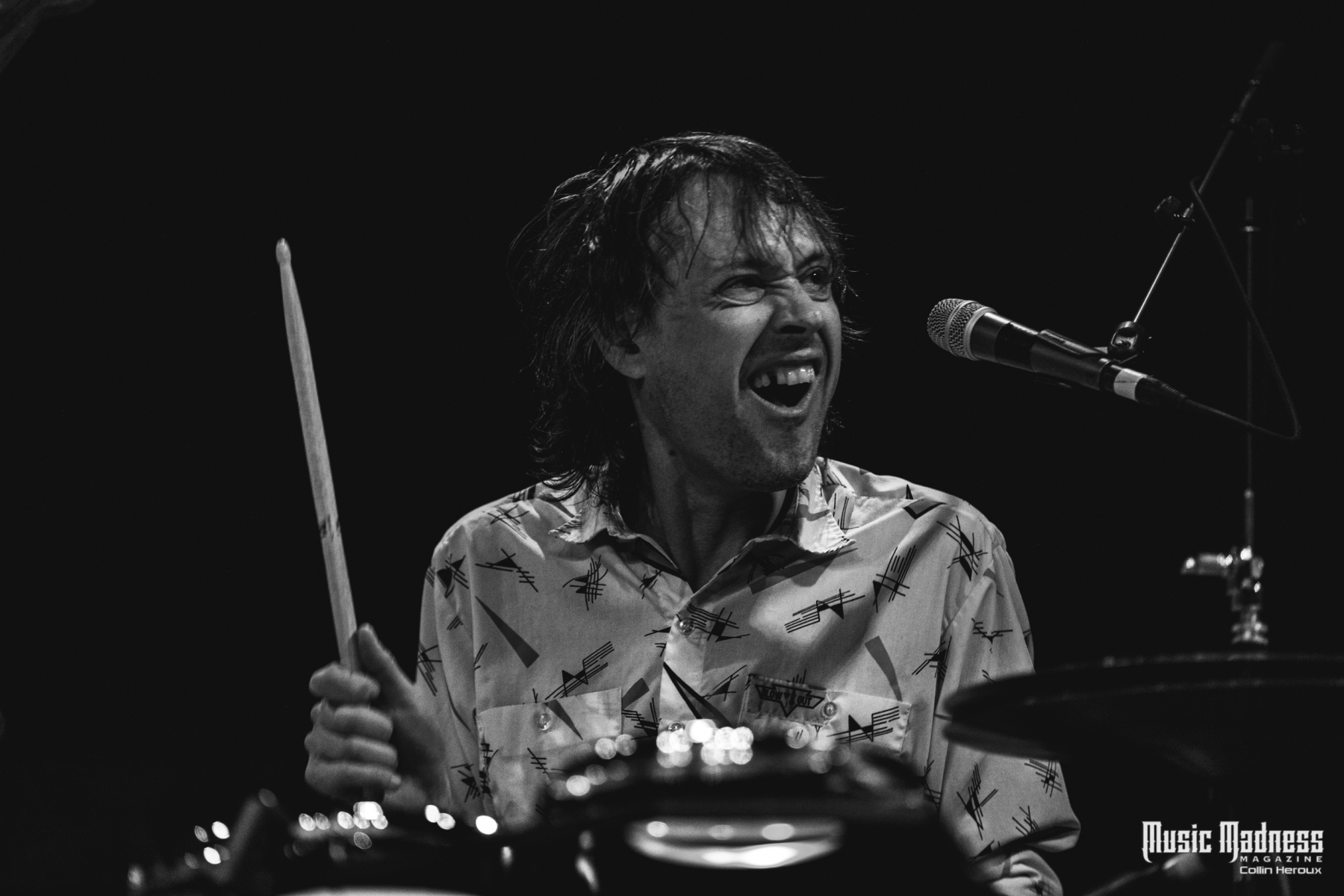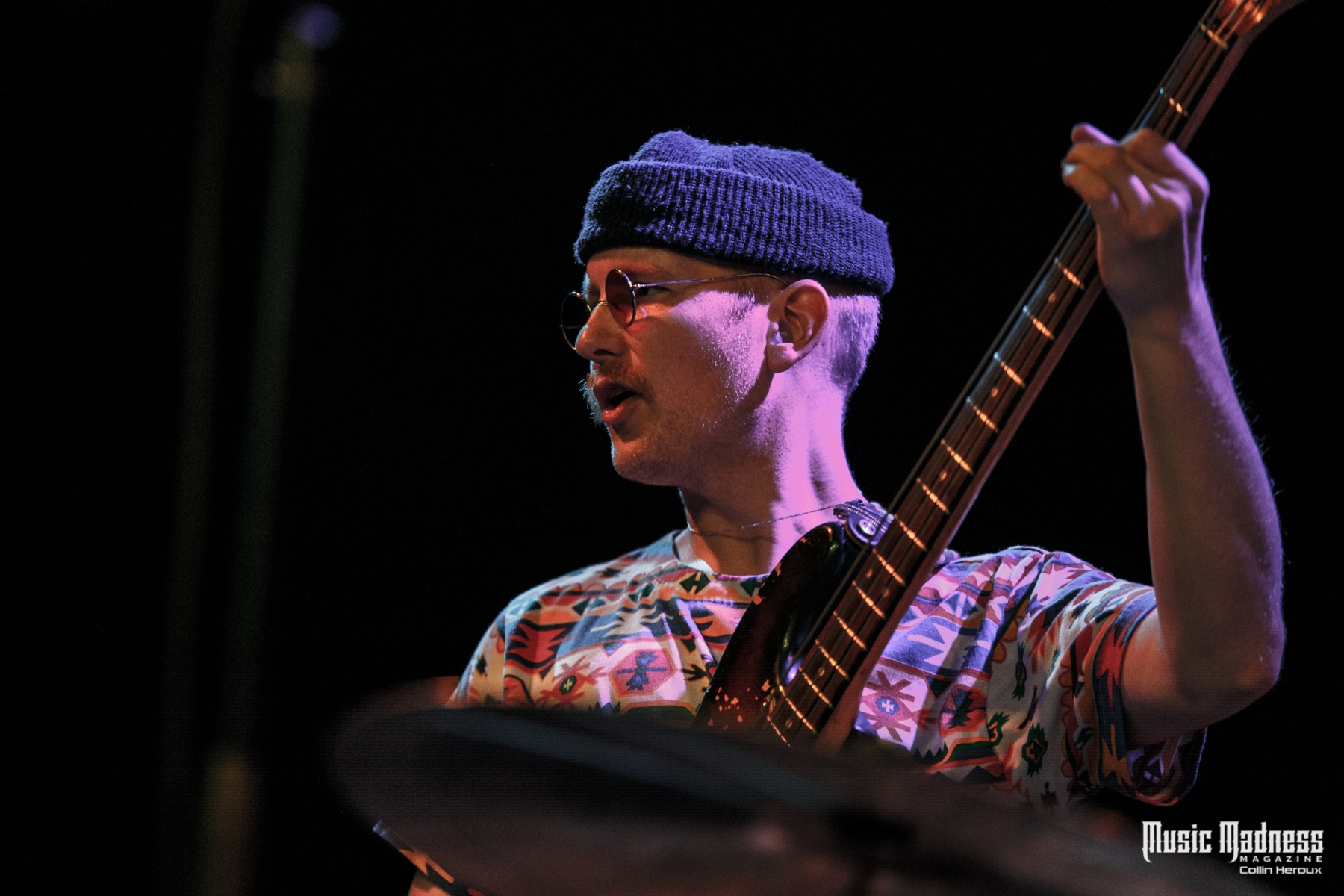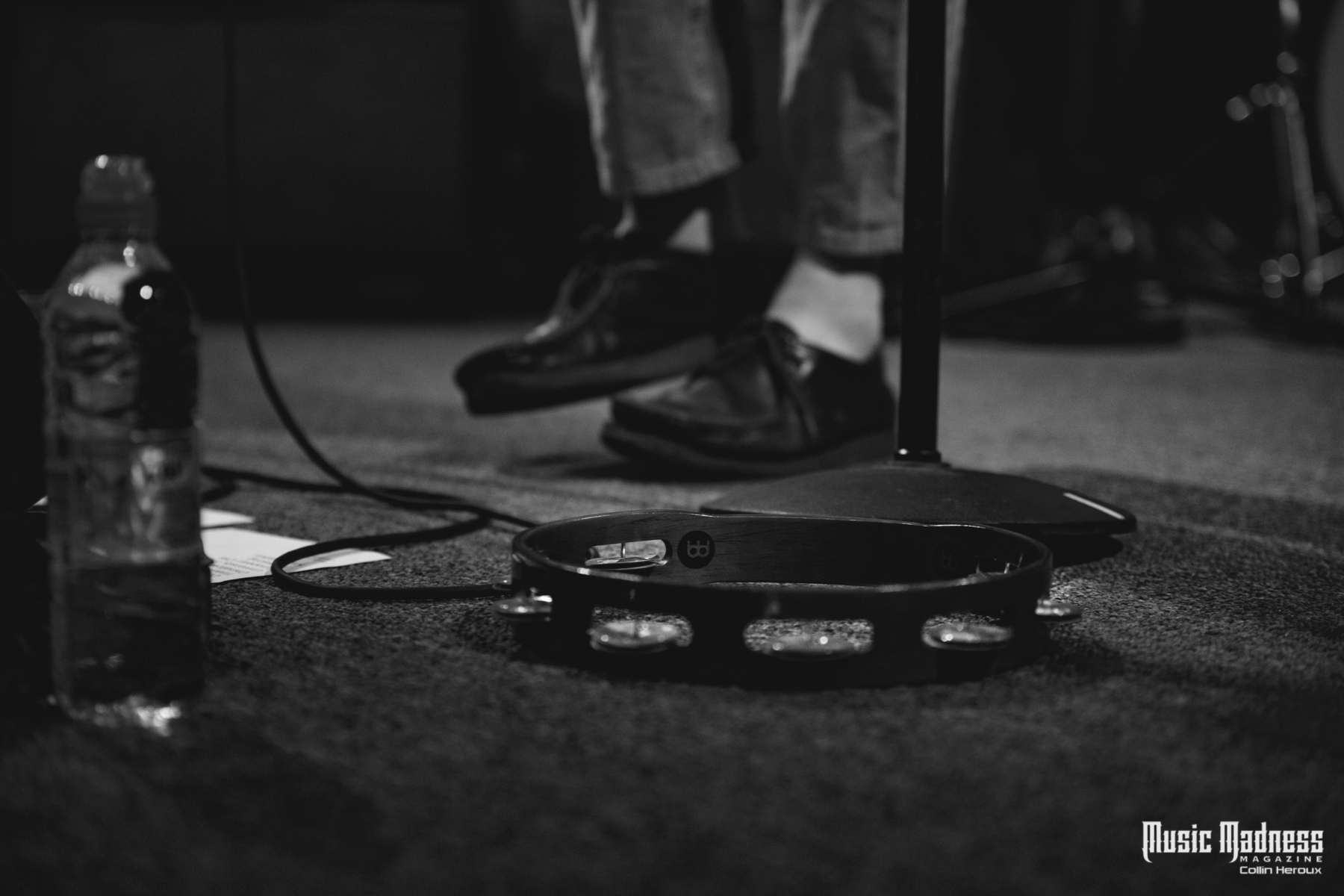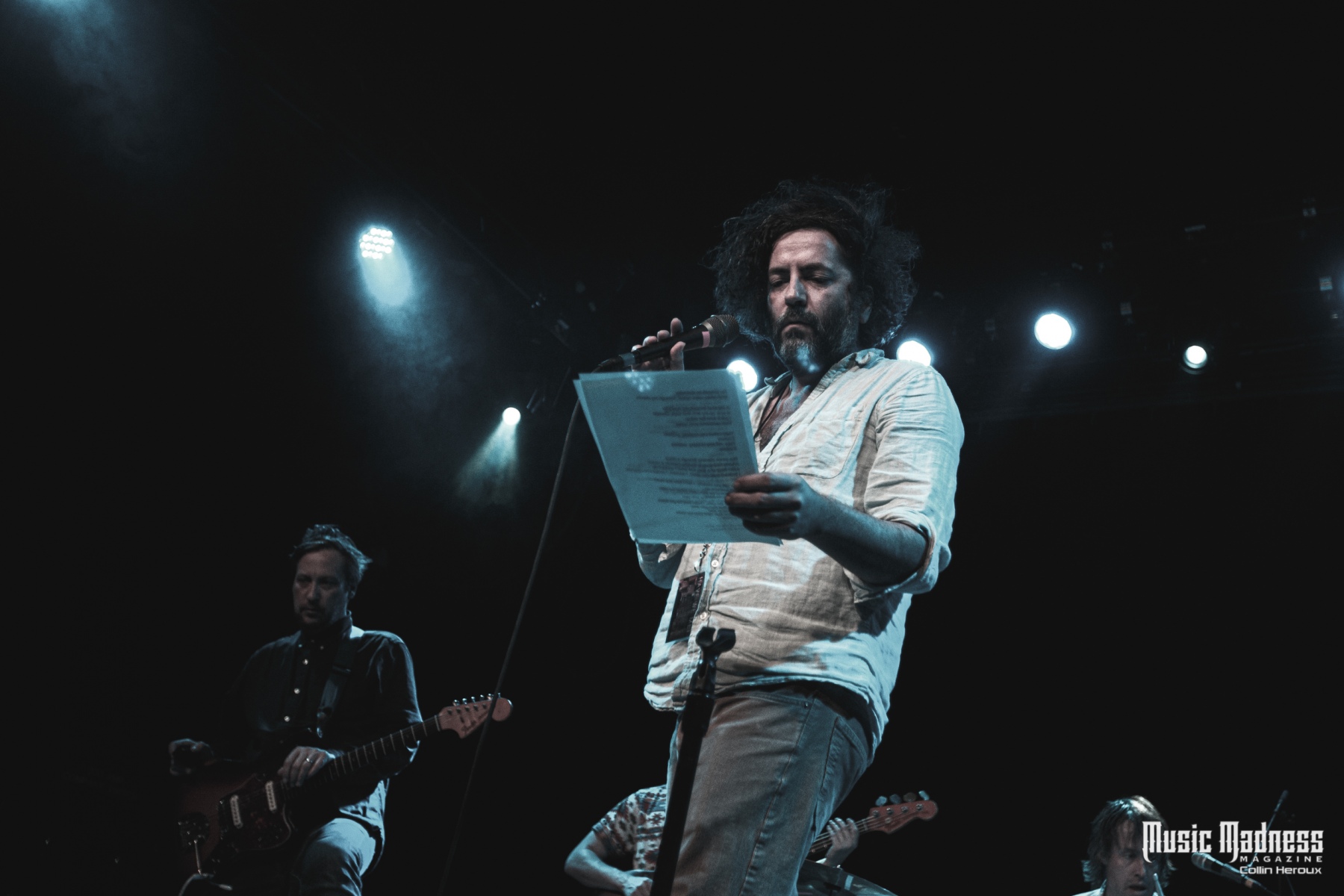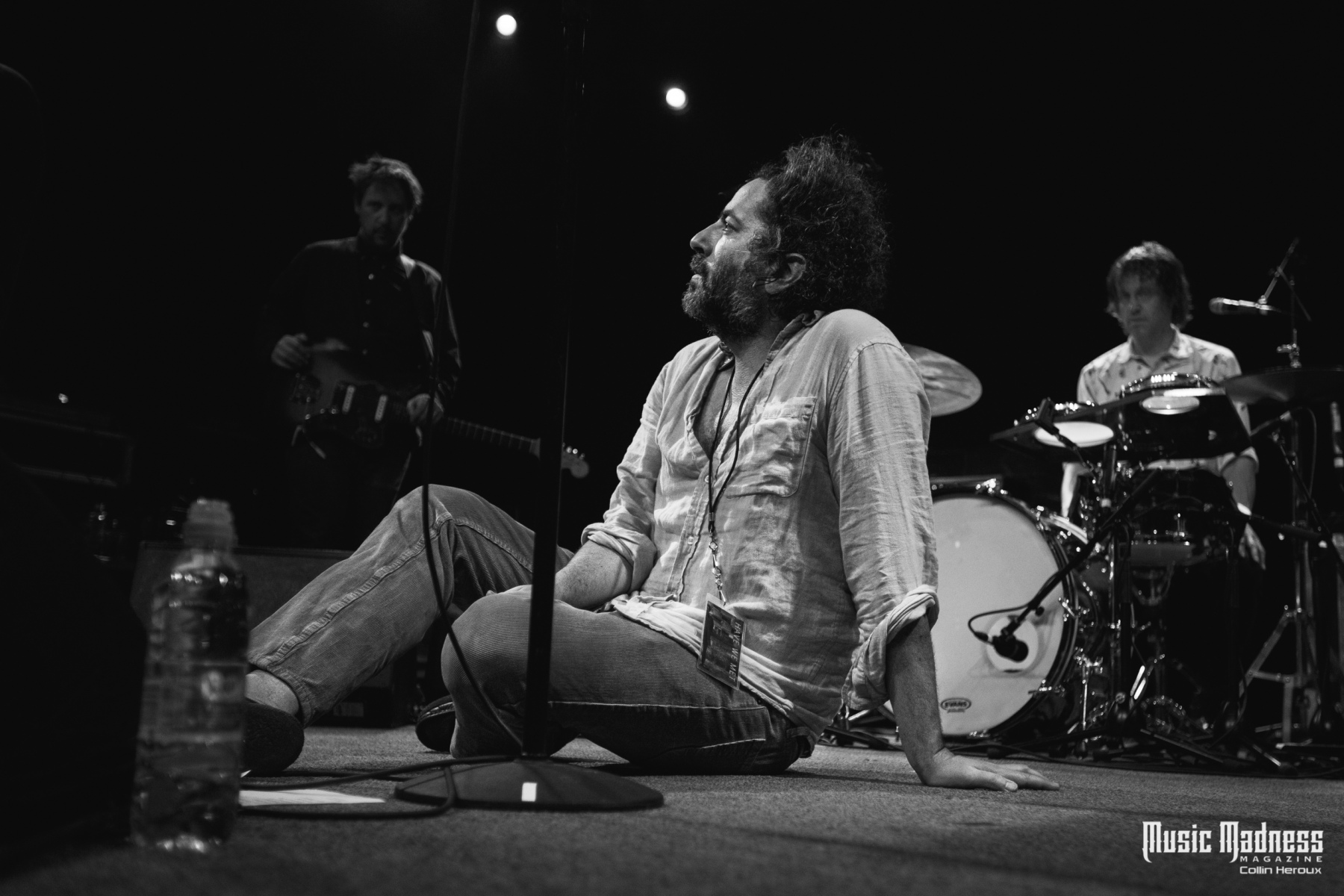
Have We Met is the thirteenth album from Canadian indie rock act Destroyer, and as every album of theirs does, it advances the private art forms of singer Dan Bejar’s inimitable writing and vocal delivery. One of the most unique lyricists of our day, Bejar’s style is lucid and wild, pouring forth from the font of his mind and marrying itself to lush instrumentals. And while his vocals are the focal point, the locus around which the world of Destroyer’s music moves, the band’s March show at Cambridge’s Sinclair club proved that the music of Destroyer is an ensemble effort.
As a live act, Destroyer is dedicated more than most bands to faithfully re-creating, and often surpassing, the sound of their record. Six musicians work in unison to build a sound that, while not abrasive, is anything but “soft rock” as their music is occasionally termed. Their set is far louder than one might imagine, and it adds an extra punch to the tracks as they come. With two sets of keys, multiple guitars, and a trumpet capable of a truly mind-boggling array of sounds through the use of effects and “gadgets”, the range of their capabilities and musicianship are truly staggering.
Bejar appears onstage much as he does on the covers of Have We Met and Poison Season, in a dress shirt unbuttoned at the top, holding his microphone in his hand, having removed it from its stand, which he keeps at waist height and leans on like a prop throughout the performance. During instrumental passages he’ll kneel and sip his drink, shifting back his untamable hair, the calm center of the weather system. By his own admission, Bejar doesn’t do audience interaction, which adds to the impenetrable mystique of the performance, a stoic icon unmovable by anything but the narratives of his songs, songs named as paintings would be.
Though Canadian by birth, and often conjuring the iconography of his native Vancouver, like in ‘Tinseltown Swimming in Blood’ and ‘Chinatown’, America appears frequently in Bejar’s writing too, nowhere more prominently than during ‘Times Square’. Throughout Destroyer’s oeuvre Bejar has always found a way to interpolate various Americanisms, cliches, and cultural artifacts, even borrowing from Kenny Rogers’ ‘The Gambler’ for a brief moment, just one of the slew of references to old tunes that populate the recesses of his songs. Wherever his geographic focus lands, Bejar’s conceptual dramas sweep and boom, conjuring elemental imagery intersecting in the beating hearts of life.
Have We Met was the focus of the night, and the set began with the record’s opener, ‘Crimson Tide’. A lengthy, labyrinthine track, Bejar’s narrator negates himself again and again, trying on strange metaphors and discarding them just as easily. Bassist Colin Cowan propels the track forward with a bouncing bass groove, as delicate piano transforms into a distorted sheet of synth and guitar throughout the track. The song pivots at its midpoint around a particularly comic couplet: “He’s not a child, he’s twenty-five / He’s never felt so alive, crimson tide” – and Bejar in his delivery sounds almost as if the refrain of the song’s title has taken him by surprise, rushing to squeeze it in the last few syllables of the line.
At the midpoint of the night, Bejar pauses and lifts a pair of papers from the floor, announcing that he’d like to read a poem by the late Lou Reed, whose time with the Velvet Underground and prolific solo work are a clear point of reference. The poem is ‘Ecstasy’, which appeared as the title track of a Reed solo album now two decades old. Over a patient guitar pattern, Bejar adapts Reed’s word to his voice ably – both men fond of their images of New York and obscure reference points. It’s a piece about the impermanence of happiness, of love, of joy. When the chorus arrives the gentle guitar is joined by a haunting, bending wail from trumpet player J.P. Carter, who keeps his right hand on his instrument while his left fiddles with pedals to transform its cry.
Later the band moves into ‘Cue Synthesizer’, a somewhat nihilistic cut from Have We Met that is self-aware in the way it plays with its own structure. Beginning with just Bejar and piano, it adds the eponymous, synths, guitars, drums – and fake drums – at the beginning of the chorus where Bejar calls for those, with further synth and guitar flourishes later in the track. Bejar delivers some of his funniest lines but also most inscrutable metaphors on this track, pairing them with what may be the catchiest song from the whole thing. At the Sinclair, the song comes to an instrumental head even more fantastically than on-record, with drummer Josh Wells soloing the song to its conclusion on a small set of drums mounted where a cymbal would normally be.
As the night drew closer to its conclusion, a lengthy trumpet drone from Carter rang out. Many minutes long, the rest of the band relaxed for a moment, with Bejar sitting calmly center stage, weight shifted back onto his left hand, head elevated just a bit, looking up ostensibly into the darkness beneath the room’s high ceiling. This transitioned into the final song of the main set, the sprawling and multi-faceted ‘Suicide Demo for Kara Walker’. Destroyer then adjourned backstage and returned for an encore. Beginning with ‘Poor in Love’, from 2011’s Kaputt, it contains perhaps one of the most iconic Bejar-isms in its very first line: “I was poor in love. I was poor in wealth / I was okay in everything else there was”. To close the night, the band hoisted their instruments one last time for ‘Rubies’. Brisk and owing to a more rock-influenced era of the band, its instrumental midsection swelled gorgeously. “All good things must come to an end – the bad ones just go on forever” – a final self-referential, quietly-clever nod to cap a night which had traversed so much thematic ground.
Review and Photos by Collin Heroux

